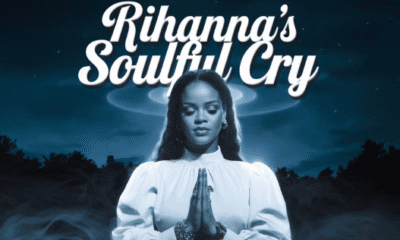NaijaGists.com Latest News Updates
“Nigeria Has Adopted The Colonial Master Anthem” – Arise O Compatriot Co-Author Slams Tinubu
Nigeria Has Adopted The Colonial Master Anthem – Arise O Compatriot Co-Author Slams Tinubu
In an urgent plea to alleviate the severe hardships and multidimensional poverty affecting many Nigerians, political leaders are being urged to abandon their selfish approach to governance. This call to action, seen as a crucial step towards providing a new lease of life to millions, especially the disillusioned youth, was made by Sota Omoigui, co-author of the Nigerian National Anthem.
In a statement issued on Monday, Mr. Omoigui strongly condemned the recent decision to revert the national anthem to the old colonial anthem, “Nigeria, We Hail Thee.” This change came after the National Assembly approved the National Anthem Bill 2024, and President Bola Tinubu signed it into law on May 29. The decision marks a departure from the anthem Mr. Omoigui co-authored, “Arise O Compatriots.”

Mr. Omoigui described this shift as “regressive and a betrayal of our independence.” He recalled his dreams for Nigeria when he wrote the anthem in 1978, hoping the country would advance and take its place among great nations. However, he lamented that these dreams had been hijacked and degraded by a political leadership he described as a “criminal enterprise,” making many Nigerians question if the country was ever ready for independence.
“It is a symbol of a political leadership that is clueless and has so lost its way that it goes crawling on its hands and knees back to kiss the ring of its colonial master to adopt its anthem – music and lyrics,” Mr. Omoigui stated.
He pointed out several reasons given for the quick reversion to the former anthem, noting that the most striking to him were claims that the colonial anthem embodied more relevant values and would foster patriotism. Mr. Omoigui dismissed these reasons as hypocritical.
“First, the Nigerian anthem: The first two lines of Arise O Compatriots, Nigeria’s call to obey is a call to action. It calls on us to serve our fatherland with love, strength, and faith. There is nothing more patriotic than that.
“But our leaders have not the foggiest idea of the meaning of patriotism. They are too greedy and simply incapable of living up to the creed of the Nigerian anthem – an anthem with lyrics written by Nigerians and music composed by a Nigerian.
“Our culture, music, movies, song and dance are exported and celebrated by different races all over the world. Radio stations and clubs in cities from Alaska to Argentina play Nigerian Afrobeat. Yet in the birthplace of that culture, the leaders reject their own anthem for a colonial anthem,” he lamented.
Mr. Omoigui accused the nation’s leaders of stealing from the poor and failing to serve the fatherland with love, strength, and faith. He contended that they had failed to create a nation bound in freedom, peace, and unity. According to him, the leaders have not been guided by God and have failed to teach the youth in love and honesty, as they lack both qualities themselves. He added that they live corruptly and have failed to live justly and truthfully.
Analyzing the colonial anthem, Mr. Omoigui acknowledged that it was suitable for its time in history but insisted that era had long passed.
“They want to now force Nigerians to sing Nigeria; we hail thee. They want us to hail the 53% unemployment rate of our youths and the 34% unemployment rate of our adults.
“They want us to hail the minimum monthly wage of N30,000.00, whose earners must work for three months to purchase a bag of rice that costs N100,000.00.
“They want us to hail no electricity, roads, pipe-borne water, dilapidated and unsanitary schools with no roofs or windows and… dilapidated healthcare systems including some of our university teaching hospitals, that are death traps, where there are limited medications, few supplies or equipment and in many cases not even running water,” he said.
Mr. Omoigui highlighted these issues as indicative of the government’s failure across various sectors, leading to widespread despondency among citizens. He emphasized that the reinstatement of the colonial anthem was inappropriate and should not be accepted.
“Nigerians are experiencing neither peace nor plenty, and the majority lack electricity, roads, pipe-borne water, healthcare, or social amenities,” he declared.
He stressed that citizens are worse off today than they were at the time of independence, and changing the anthem while expecting different results is sheer insanity. “The Nigeria of our youth that we knew of in our anthem of 1978 sadly no longer exists. It has been replaced by a rapacious system of governance that is unsustainable and, if unchecked, spells doom for the country,” he said.
Mr. Omoigui argued that the political leaders, from independence to the present, have shown themselves incapable of living up to the aspirations embodied in either the Nigerian or colonial anthems. He called on them to change their ways rather than the anthem to move the nation forward.
He urged Nigerians to rise and resist leaders who would impose a neocolonial yoke upon them. “Fellow Nigerians, you were born free. Your ancestors fought the slave traders; your founding fathers resisted the colonial masters. And now it is your turn to resist those who would put the neo-colonial yoke around your neck. Arise and resist this modern-day slavery. Arise and resist singing this lie of a colonial anthem they want you to sing,” he declared.
Mr. Omoigui’s passionate plea for change underscores a deep frustration with the current state of governance in Nigeria. His words resonate with many who feel that the country’s potential has been squandered by leaders more interested in personal gain than national progress. As Nigeria faces this critical juncture, the call to action for both leaders and citizens is clear: true progress requires a shift in values and priorities, away from selfish governance and towards a commitment to the nation’s collective well-being.
Omoigui’s statement is not just about the national anthem; it is a broader call for a more accountable and compassionate leadership that genuinely serves the people and honors the spirit of independence and self-determination that Nigeria’s founding fathers envisioned.
































